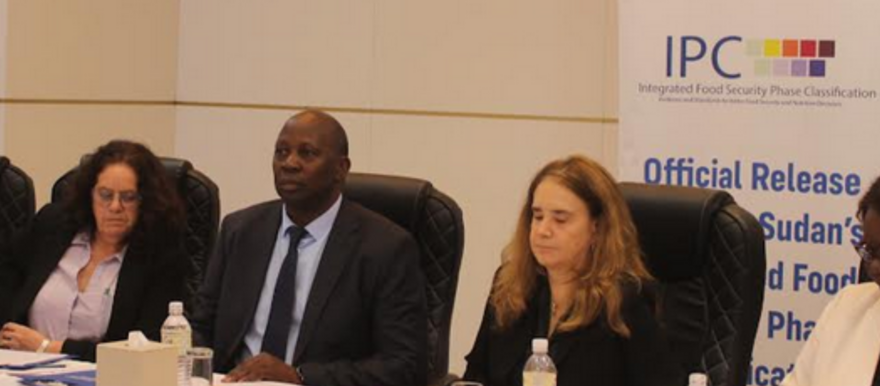More than 7.1 million South Sudanese, around 65 percent of the population will face acute food crisis by July 2024, the government and the United Nations revealed on Monday.
This figure represents a reduction of 66 percent compared to the same period – running from April to July – last year, which corresponds to the dry season.
According to the joint report presented to the press on Monday, severe flooding, dry spells, violence, the conflict in Sudan, and economic shocks contribute to aggravating food insecurity.
The report presented on Saturday is based on the IPC index (Integrated Food Security Phase Classification) which includes five levels of severity of the situation – minimal, under pressure, crisis, emergency, and famine.
Speaking during the launch of the report on Monday in Juba, Josephine Joseph Lagu, Minister of Agriculture and Food Security, said 79,000 people will face a food crisis in the Greater Pibor Administrative Area and Northern Bahr el Ghazal and returnees fleeing the Sudan conflict.
“During the lean season projection period of April to July 2024, an estimated 7.1 million people, 56.3 percent of the population will likely face crisis or worse acute food insecurity, with 79,000 people likely to be in catastrophe acute food insecurity in Pibor County in Greater Pibor Administrative Area, Aweil East County of Northern Bahr el Ghazal State, and among the population of returnees from Sudan,” she said.
For her part, Mary-Ellen McGroarty, the WFP Country Director, said the food insecurity and malnutrition burdens remain at staggering levels that engulfed the country for a decade now.
“The IPC findings are critical to the design and targeting of food and nutrition programs over the next year, highlighting where we need to prioritize resources so that together we can save lives and protect human capital,” she stated. “This year there is some improvement in the situation as compared to last year, this is a welcome development.”
“However, the food insecurity and malnutrition burdens remain at staggering levels and it is a crisis that has engulfed the country for a decade now,” the WFP boss added.
Meanwhile, according to Felix Dzvurumi, the UN FAO Deputy Country Representative in South Sudan, the IPC is an early warning tool that requires actions in response to the needs of people in dire need of food assistance.
“We cannot overemphasize the importance of peace in the country. It is only when there is peace that farmers, fisher folks, livestock keepers, and traders can do their business to produce food, build a resilient food system, and contribute to the economic growth of the country,” he said. “With peace, markets can function and provide economic opportunities for the country’s young population. With peace, our children can go to school and learn agricultural skills that will make them future champions of this country.”
Last year, the IPC report estimated that 7.7 million South Sudanese would face severe acute food insecurity between April and July this year.
The new analysis points to a reduction of about 600,000 people in the net year’s lean season of April to July 2024.




